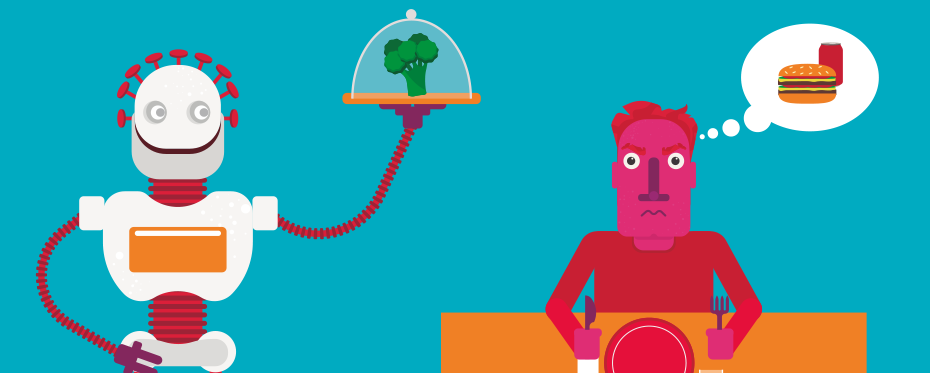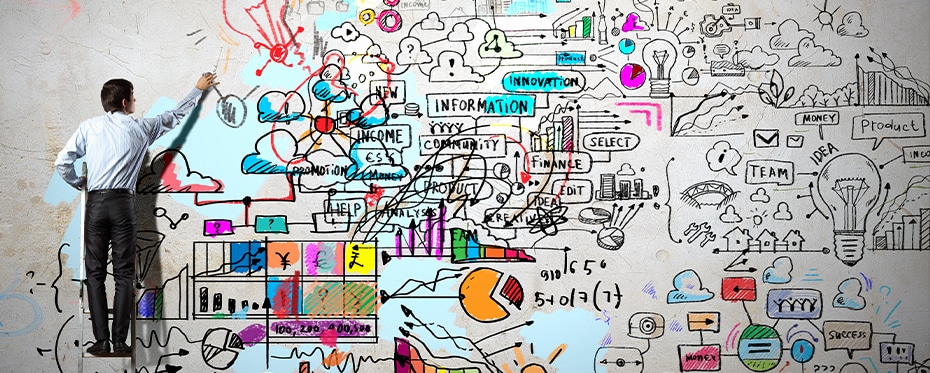Tag: Decision Making
The FMsquare Foundation: Forging a fuzzy future

The FMsquare Foundation is an organisation dedicated to spreading the holistic values of ‘fuzzy logic’ – a varied and reflexive ‘natural’ logic that accounts for infinite values and human imprecision in data processing. In an exciting interview with Research Outreach, Andreas Meier (Founder), Edy Portmann (President), and Witold Pedrycz (Ambassador) discuss their respective roles as fuzzy logic evangelists working with […]
Read More… from The FMsquare Foundation: Forging a fuzzy future
Regulating emotions in young adulthood

Young adults with complex mental health needs often find it difficult to regulate their emotions and manage impulsive behaviour. Dr Kate Hall and her collaborators from Deakin University, Australia, have developed and evaluated an intervention that has applicability across diagnostic categories of mental health and substance use needs, and can be delivered alongside existing treatments. This intervention teaches young people […]
The benefits of exercise programmes for pre-school children with autism spectrum disorders

Children with autism spectrum disorder (ASD) see the world differently and can find it hard to interact with both their environment and other people. Sport has many benefits for mental and physical health, and therefore Kelong Cai, of Yangzhou University, hypothesised that sport may offer a novel therapy for pre-school children with ASD. He implemented a 12-week mini-basketball programme for […]
Do we feel free when we make hard decisions? A psychological perspective on feelings of freedom in decision-making

Dr Stephan Lau, a Junior Professor at the Federal University of Applied Administrative Sciences in Berlin, is one of the first researchers to investigate experiences of freedom from a psychological perspective. Over the past decade, Dr Lau and his colleagues have conducted much research using a wide array of novel techniques to explore different factors which influence our experiences of […]
Reducing risks, improving outcomes: The benefits of Patient Blood Management

While blood transfusions are generally very safe and have saved millions of lives, they carry a small risk of serious side effects. These risks can be lessened through the use of Patient Blood Management (PBM), a series of interventions that seek to minimise blood loss, prevent anaemia and reduce the need for a transfusion before, during and after major surgery. […]
Read More… from Reducing risks, improving outcomes: The benefits of Patient Blood Management
Consciously calculating unconscious bias: The role of dichotomous valuation

Like with any choice, when faced with data selection, people are influenced by their own biases. A new research paper by econometric expert Dr Xingwei Hu of the International Monetary Fund evaluates how people subconsciously view different variables and the way this influences their decision-making. By assessing decisions through dichotomous valuation, Dr Hu is able to show the extent to […]
Read More… from Consciously calculating unconscious bias: The role of dichotomous valuation
Social dilemmas reveal selective inattention in indirect reciprocity

Cooperation with others generates prosperity within human society, yet research into the evolution of cooperation, particularly indirect reciprocity, has left much unexplained. Indirect reciprocity involves assessment rules and draws on moral judgment. Most studies assume that people will consider all the information available to them before deciding whether to cooperate. Dr Isamu Okada, Associate Professor at Soka University, Japan, has […]
Read More… from Social dilemmas reveal selective inattention in indirect reciprocity
Choice‑making and choose‑ables: Making decision agents more choosy

Dr Lorraine Dodd, from Cranfield University, examines the Artificial Intelligence approach to modelling a decision agent’s choice-making. She explores the factors affecting an adaptive agent’s freedom of decision-making and investigates factors that can shape, extend, limit or re-focus an agent’s potential in terms of their ways forward. Dr Dodd also discusses the higher-order concept of choice-making that she refers to […]
Read More… from Choice‑making and choose‑ables: Making decision agents more choosy
Creative or destructive: The perspective may be a matter of convenience

Creativity is largely understood as the production of novel and useful ideas or things. In this article, we look at the research of Chetan Walia, who argues for a new dynamic definition of creativity in order to better understand the difference between creativity, creator, and creation. This new dynamic definition will allow us to more effectively consider how negative creativity […]
Read More… from Creative or destructive: The perspective may be a matter of convenience
Opinion dynamics and consensus in social networks

Denis Fedyanin and Alexander Chkhartishvili are researchers at the V.A. Trapeznikov Institute of Control Sciences of the Russian Academy of Sciences in Moscow. They use statistical modelling of social network structures to simulate opinion dynamics and decision making. Their recent work focuses on a consensus analysis of complex social network structures. The development of online social networks together with their influence on […]
Read More… from Opinion dynamics and consensus in social networks